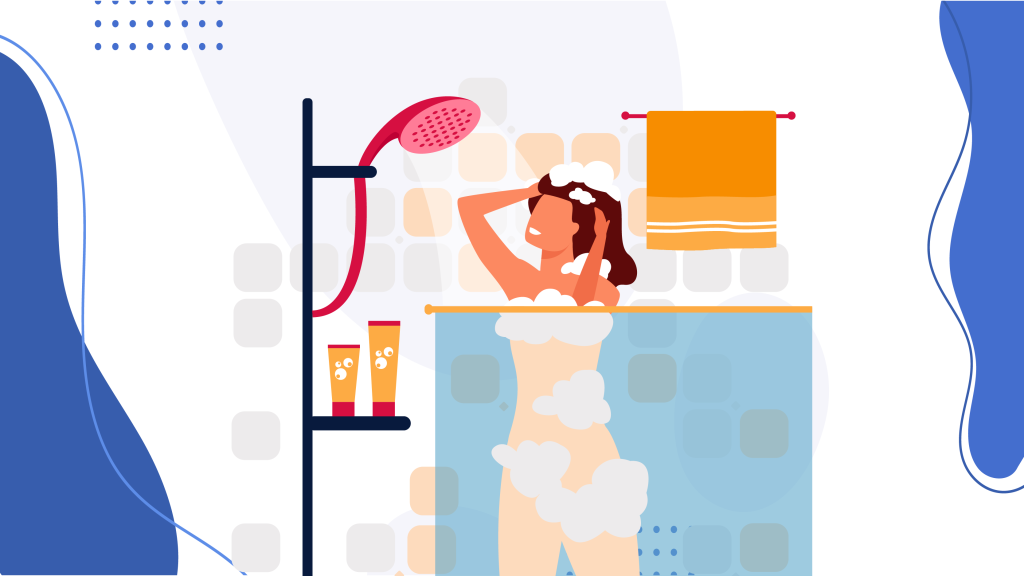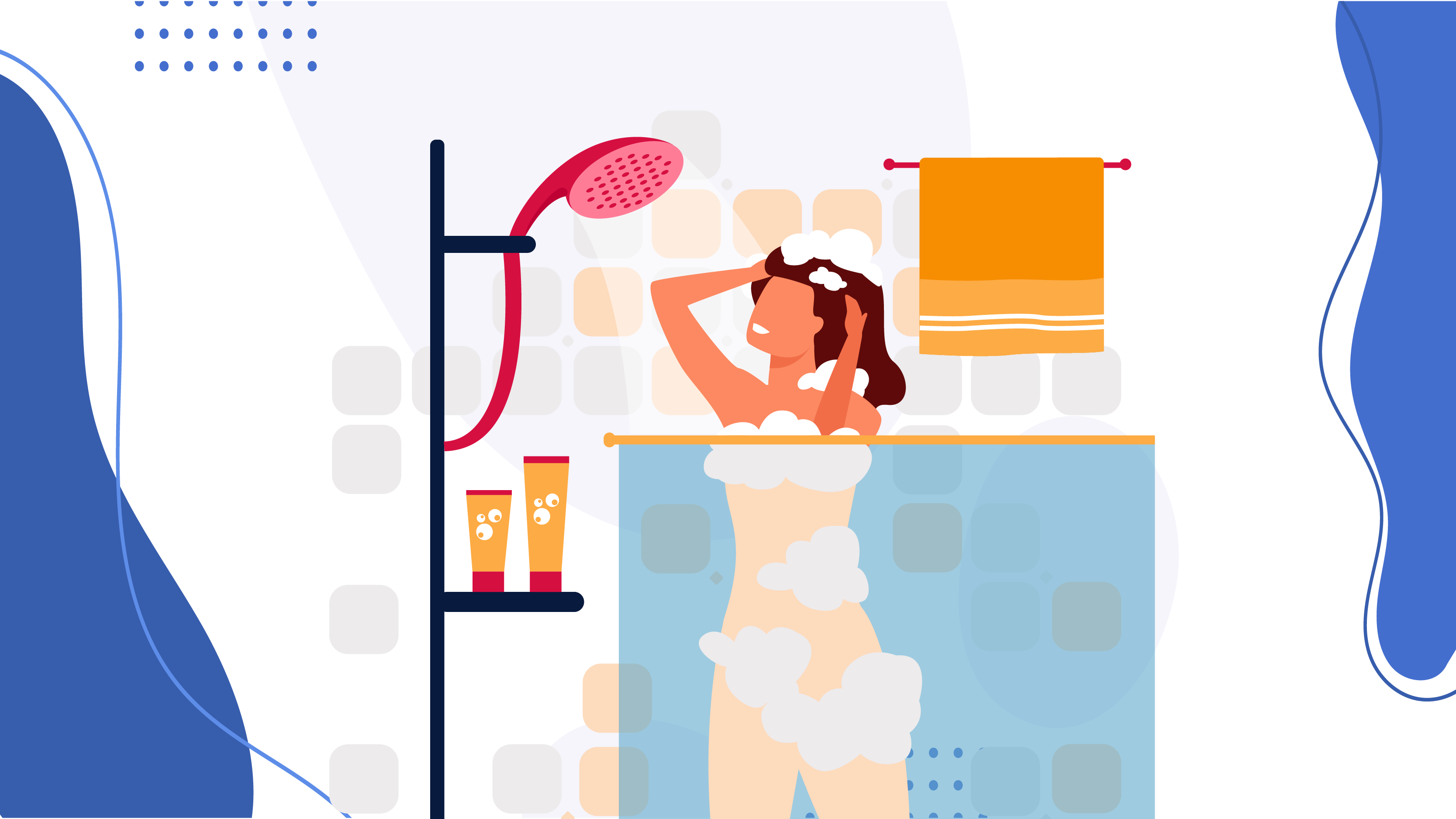
The temptation of a relaxing warm shower after a long day at work is undeniable—it’s a ritual that promises renewal. The stimulating jolt of a quick cold shower in the morning, on the other hand, maybe just what you need to shake off the traces of sleep and fully awaken your senses. Regardless of your own choice, whether it’s the crisp aftermath of a short, icy shower or the lingering warmth of a leisurely, hot bath, the post-shower sensation is consistently wonderful. Many people are unaware that, in addition to providing instant relief, these differing temperatures have a variety of potential health benefits.
Read More – Easy Ways In Which You Can Increase Your Metabolism
Warm showers have long been considered the standard, valued for their capacity to relieve stress and produce relaxation. However, exploring the cooler end of the range has its own set of major benefits. Cold showers, for example, have been shown to reduce inflammation, alleviate pain, improve circulation, reduce stress, and even alleviate muscle aches and weariness.
Investigating the health effects of different shower temperatures reveals a remarkable array of advantages. The warmth of a shower can improve cardiovascular health, relieve stiff joints, and promote better sleep, whilst the chilly embrace of a cold shower is especially useful for athletes recovering from sports injuries or anybody looking for an invigorating start to the day.
When it comes to showering, the temperature you choose becomes more than a matter of personal preference—it’s a calculated decision that can have an influence on your health. So, whether you’re looking for the right warmth after a long day or an energizing chilly start to the day, recognizing the potential health consequences can lead you to a shower experience that not only feels good but also benefits your overall health and vitality.
Cold Shower Benefits
with temperatures ranging from 50 to 60 degrees Fahrenheit, provide various advantages:
- Improved Hair and Skin Health: Cold showers, as opposed to hot showers, can temporarily tighten pores, assisting in the retention of natural oils in your skin and hair. This is especially good for folks who have dry skin or brittle hair.
- Mental Health and Immunity Enhancement: Cold water causes the release of noradrenaline and beta-endorphins. Some people may benefit from the electrical impulses sent from nerve endings to the brain during cold showers. Furthermore, the increased immune response may aid in the prevention of infections such as the common cold.
- Increase blood flow: When we come into contact with cold water, our bodies go into survival mode, causing our heart rates to increase. The cold stimulus jumpstarts your circulatory system, forcing your heart to work harder and improving general blood circulation throughout your body.
Improved blood flow may result in gradual improvements in your skin, decreasing unpleasant blemishes and creating a healthier overall appearance. (However, engaging in at least 30 minutes of daily activity remains the best way to ensure healthy blood circulation without the chills.)
A quick cold shower in the morning delivers an energy boost and can help you develop a consistent pattern. By changing your shower routine and daring to turn the nozzle the other way, the body’s efforts to stay warm induce a momentary metabolic surge, which aids in weight loss.
While cold showers have benefits, particularly for metabolism, they should never be used in place of other weight-loss tactics, skincare routines, and regular exercise.
The Benefits of a Hot Shower
After a long day at work, the notion of returning home and soaking in a hot shower is sure to be appealing. Whether it’s a long soak in the tub or a long, warm shower, these moments provide more than just relaxation; they also have a number of health benefits. Let’s look at the benefits of hot showers for our mental health, physical health, and skin.
- burn some calories: Indulging in a hot bath not only allows you to relax but also aids in the burning of calories. It is important to remember, however, that while hot baths provide relaxation and calorie burning, they should never be used in place of regular exercise. Furthermore, showers should be taken with caution because extended exposure to hot water might increase the risk of burns or heat stroke.
- Keep Your Skin Clear and Nourished
Taking a hot bath or shower allows you to open your pores and eliminate toxins that may have accumulated in your skin over the day. This can result in a revitalized complexion that is well-moisturized.
- Improve Your Sleep Quality
After a long day, your muscles may stiffen, and taking a warm bath or a hot shower can produce relaxation, calming both your body and mind. Showering a couple of hours before bedtime not only promotes better sleep but also reduces bacteria, filth, sweat, and body oils from accumulating on your bedding. Incorporating nightly showers into your regimen can improve your sleep and reduce stress.
However, it is critical to take caution by avoiding Spending too much time in a warm bath before bedtime and restricting your bath or shower time to 20 minutes. Additionally, to fully enjoy the benefits of evening showers, avoid extremes in water temperature and instead go for a moderate temperature.
Choosing the Proper Shower Temperature
A chilly shower may not be everyone’s idea of happiness, but the possible health benefits may make it worthwhile. Cold showers have been shown to reduce inflammation, and discomfort, improve circulation, reduce stress, and relieve muscle aches and weariness. Hot showers, on the other hand, help to promote cardiovascular health, joint comfort, and sleep.
It is critical to know when to take a hot or cold shower. Both provide significant health benefits and have differing effects on the body. Individuals suffering from arthritis, for example, may find relief in a warm morning shower since it is softer on their bones and promotes increased movement. Athletes suffering from sports injuries, on the other hand, may benefit from a cold shower, particularly for inflammation reduction.
It’s critical to avoid extremes—shower temps that are too cold or too hot might be dangerous. Understanding the exact impacts or benefits you seek from your showering habit is critical before altering the shower nozzle. This smart advice can be a great resource in determining whether a cold or hot is more likely for your desired outcome.
Conclusion
Temperature is more than simply a personal preference in the shower—it’s a key to unlocking a slew of health advantages. Whether you want the refreshment of a warm evening shower or the invigoration of a brisk morning shower, each temperature setting has its own set of benefits. Warm showers are soothing and relaxing, but cold showers are refreshing and energizing.
Read More – 6 Most Efficient Tips And Tricks On How To Grow A Beard Faster
Aside from providing instant comfort, these everyday rituals contribute to cardiovascular health, pain relief, stress reduction, and other benefits. So, the next time you stand beneath the showerhead, consider not only the sensation of the water but also its potential impact on your health and vitality, making each shower a purposeful step toward health and vitality.
Read More – How To Do A Facial At Home: Step-By-Step DIY Facial



